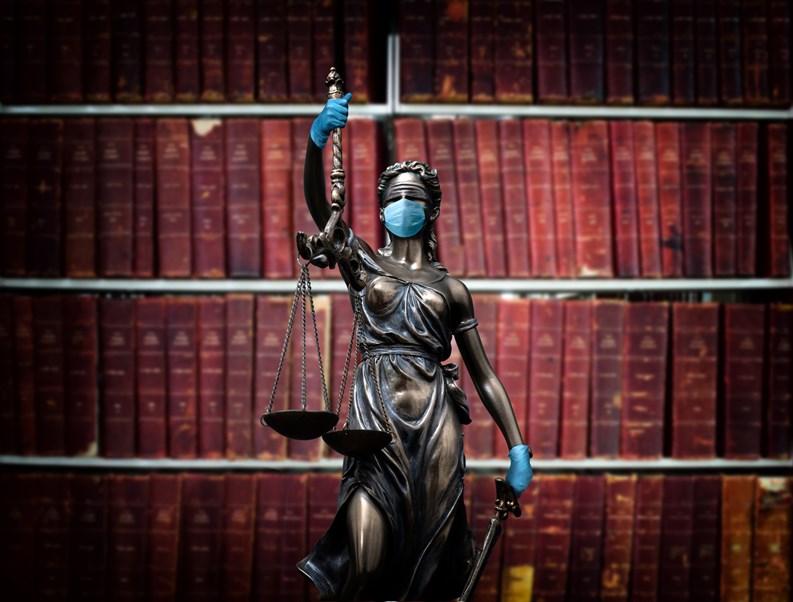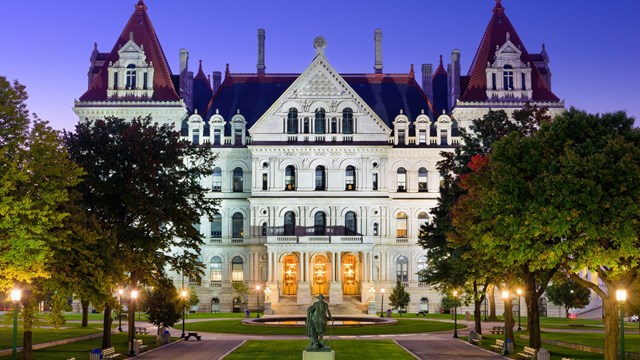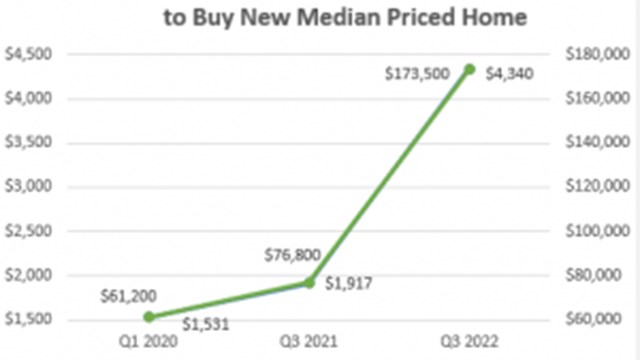Editor's note: This article is Part 1 of a two-part series from the authors examining some of the many legal questions and considerations raised by the global pandemic for co-op, condo, and HOA boards, as well as landlords and building owners. Be sure to check back next week for Part 2, which will examine issues of personal privacy, transparency, and disclosure.
The Covid-19 pandemic has confronted owners, managers and boards of New York City multifamily buildings with operational challenges not seen for a hundred years, since the so-called Spanish Flu pandemic of 1918 swept across the globe. The social distancing rules and restrictions imposed by governments at all levels have raised questions from boards and residents alike about the responsibilities and duties of both the managers and occupants of residential buildings.
In an effort to look at the short- and long-term legal implications and issues affecting multifamily living during the current pandemic -- and shed light on how past generations coped with similar circumstances -- we researched and analyzed court cases handling similar issues from the past, including the aforementioned Spanish Flu, as well as the Scarlet Fever epidemic of the mid-1800s and today’s COVID-19-related executive orders and federal and state case law and legislation.
Protecting the Health of Building Occupants
New York multifamily residential dwellings generally fall into three categories: rental, condominium, and cooperative apartment buildings. The primary responsibility of building managers, whether they be owners of rental buildings or the board members or managers of co-ops or condos, is to maintain the health and safety of their buildings and their occupants. According to Torres v. Ragonesi, 83 Misc.2d 84, 370 NYS2d 779 (NYC Civil Court, New York County 1975), the statutes and regulations governing residential buildings in the city provide that “...it is the responsibility of the owner of residential buildings to maintain the building, remove violations and insure that the tenants have habitable premises in which to live.”
Ownership or management is therefore required to maintain building common areas in compliance with the public health code. (See NYC Administrative Code §17-133 [Penalties] which states, “Every person, corporation, or body that shall violate or not conform to any provisions of the health code of the City of New York, or any rule or sanitary regulation made, shall be liable to pay a penalty not exceeding the maximum amount allowed by the health code of the City of New York.”).
In the context of the COVID-19 pandemic, the duty of owners and managers is to maintain the building and implement all necessary and appropriate precautions to protect its occupants and prevent the spread of disease. This duty was recognized long ago in Majestic Hotel v. Eyre, 53 AD 273, 65 NYS 745 (1st Dept. 1900) -- a case involving an epidemic of scarlet fever where the Court declared:
"We doubt not, if the landlord was guilty of affirmative negligence, or negligently suffered acts to be done by which a contagious disease was introduced into a thickly-populated hotel or tenement house, or, upon the breaking out of a contagious disease upon the premises, if he, retaining and exercising a general control over the public parts of the house, should negligently omit to take precautions to prevent the spread of the epidemic, or otherwise to protect the tenants from contagion, when the means lay within his power so to do, a case might be made which would avail as a justification for the surrender of the premises." (Emphasis added)
The Rights and Obligations of Occupants
Tenants, shareholders, unit owners, and other occupants residing or otherwise present in buildings within the zone of the pandemic are necessarily subject to all of the federal, state, and local social distancing guidelines and mandatory directives that restrict their activities.
In New York State, the primary restrictions on personal freedom of movement and social interaction emanate from the executive orders of the Governor, under the authority given to him to declare a disaster emergency and -- according to Executive Law §§28 and 29-a -- to “issue any directive during . . . [an] epidemic, disease outbreak” that “must be necessary to cope with the disaster and may provide for procedures reasonably necessary to enforce such directive.” (Emphasis added).
Accordingly, between March 7 of this year and the date this article was written, Governor Andrew Cuomo has issued 20 executive orders impacting the operations of the hundreds of thousands of buildings in New York City. The orders have mandated the closing of bars and restaurants operating as commercial tenants throughout the City -- many of them in apartment buildings -- as well as all gym facilities, including amenity gyms within residential buildings, until further notice.
Leases for tenants in rental buildings and proprietary leases for shareholders in cooperative buildings -- as well as § 339-d of the Condominium Act, Article 9-B of the Real Property Law -- generally provide that lessees will comply with all laws, ordinances, orders, rules and regulations of the Federal, State and City governments, along with their various departments and bureaus. Fortifying this is case law like Crayton v. Larabee, 220 NY 493 (1917), which held that powers conferred by the Legislature upon local health officials to enforce a quarantine are liberally construed.
The upshot of this is that building managers and administrators must exercise all reasonable effort to comply with the Governor’s orders aimed at slowing the spread of the novel coronavirus and protecting the health and safety of all building occupants; both management and building residents alike are subject to enforcement of those orders by all local law enforcement authorities.
Potential Lawsuits Against Boards
While residents may chafe at being denied use of amenities like gyms, playrooms and public spaces, or at being compelled to observe pandemic-related restrictions on their movement and behavior, the Condominium Act and the law undergirding gubernatorial executive orders mean that any claims that these measures are in breach of the warranty of habitability or contract will likely fail in court.
Some boards have gone a step beyond simply shutting down fitness rooms and other common spaces, and banned all non-residents (with the exception of medical and other emergency personnel) from entering their buildings. In contrast to amenity-related lockdowns, these situations may present a cause of action, as blanket bans on all visitors may go beyond the breadth of the Governor’s orders. Even if they are legally actionable however, these visitor bans would have to result in demonstrable damages or harm to earn a significant monetary number. Any other argument to reinstate rights or reopen amenities will face the same test of A.) proving that ownership or management went beyond the powers granted them by the executive order(s), and B.) that damages occurred as a result of breaching this contractual right or warranty of habitability.
Looking to the Past to Clarify the Present
While the current pandemic has been called ‘unprecedented,’ there are in fact court rulings from generations ago that provide some insight into how cases arising out of the COVID-19 experience may be dealt with when social distancing eases and the courts fully “reopen for business.”
For example, the lessons taught so long ago by the Majestic Hotel v. Eyre, supra suggest that residents who left their “uninhabitable” New York City apartments to ride out the coronavirus pandemic in second homes upstate or in the Hamptons and have been hoping for an abatement or forbearance on their lease, maintenance, or common charges obligations, are going to find themselves disappointed. In the Majestic Hotel v. Eyre decision can be found the following comments, addressed to a tenant who abandoned his New York City apartment to ride out that era’s scarlet fever epidemic elsewhere:
“So far as physical surroundings were concerned, the apartments were as habitable when the defendant voluntarily vacated them as when they were leased. It is also clear that after the fever was discovered the usual precautions known to science were taken to isolate the cases and prevent the spread of the disease. There were about 400 persons occupying apartments under lease in the hotel at the time of the breaking out of the fever; and for the most part [they]...continued to remain and occupy their apartments, without detriment to either health or comfort. The defendant abandoned his apartments on account of the fear of contagion to himself and family. We are, therefore, to see if this is sufficient to excuse the payment of rent. We know of no ground upon which the payment of rent can be successfully resisted. ”
Other issues surrounding this pandemic involve the constitutionality of the Governor’s actions, and whether they will withstand legal attacks in the years to come. Can the courts be closed, except for a select list of emergency actions? Can a governor close down a city and require its citizens to be forced to stay inside their homes? The current public health and economic crisis have raised these and countless other complex questions at both macro and micro levels of governance and community administration. In Part II of this examination, we will explore how privacy, personal agency, and the Federal Fair Housing Act (FHA) intersect in the post-COVID multifamily landscape, and raise issues that boards and managers should have on their radar as we move forward into the ‘new normal.’
Adam Leitman Bailey is the founding partner of New York City-based law firm Adam Leitman Bailey, P.C. and John M. Desiderio is a Partner of the Firm’s Real Estate Litigation Group. This advisory is offered as a service to clients and friends of Adam Leitman Bailey, P.C. and The Cooperator and is intended as an informal summary of certain recent legislation, cases, rulings and other developments. This advisory does not constitute legal advice or a legal opinion and is not an adequate substitute for the advice of counsel.










4 Comments
Leave a Comment